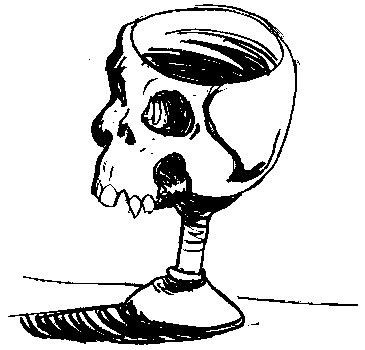


|

Illustration by Arnie Bermudez
|
|
Arizona Daily Wildcat
Monday, August 30, 2004
Print this
Things you always never wanted to know
A queen bee may lay as many as 3,000 eggs in a single day.
By 1940, a total of 94 patents had been taken out on shaving mugs.
Diamonds mined in Brazil are harder than those found in Africa.
Catgut strings are not made from catgut, but from sheep intestines.
Contrary to popular belief, the mongoose is not immune to the venom of the cobra. The mongoose is able to defeat its archenemy in battle simply because it is faster and has better reflexes.
A housefly can transport germs as far as 15 miles away from the original source of contamination.
In ancient Rome, it was considered a sin to eat the flesh of a woodpecker.
Punctuation did not come into use until the advent of printing in the 15th century. Before that, words written by scribes rantogetherlikethis.
The term "disc jockey" was coined by Variety in 1937 to describe radio announcers who stayed up all night "riding" records.
The word "horse" in "horseradish" has no relationship to the animal of the same name. It is used to mean "coarse" or "rough," as in the terms "horse mackerel" and "horse bean."
In the early 19th century the words "trousers" and "pants" were considered obscene in England. Women referred to trousers as "inexpressibles" or "a pair of dittoes."
The short-term memory capacity for most people is between five and nine items or digits. This is one reason why phone numbers are seven digits long.
"Belonephobia" is the fear of needles and sharp, pointed objects.
President John Tyler had 15 children.
After Sir Isaac Newton died, a sealed trunk was found among his belongings containing nearly 100,000 pages he had written on the subject of alchemy, astrology and the occult.
One of Napoleon's drinking cups was made from the skull of the famous Italian adventurer Cagliostro.
Write a Letter to the Editor
|
|

|
